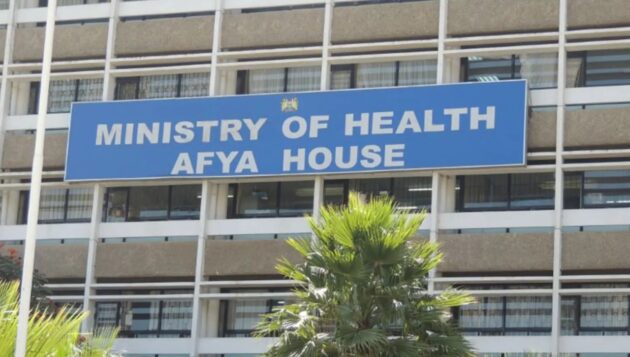
UHC implementation in limbo over budgetary cuts » Capital News
NAIROBI, Kenya, May 21 – The implementation of the Universal Health Coverage is in limbo over budgetary cuts with legislators questioning the success of the program which is a key flagship project for President William Ruto’s administration.
Documents tabled before the National Assembly Committee on Health show the State Department for Medical Services had made resource requirement of Sh319.4 billion for the 2024/2025 comprising of Sh87.9 billion for recurrent expenditure with Sh231.4 billion for development expenditure.
The Budget Policy Statement would however revise it downwards to Sh121.9 billion with the annual estimates placing the budget at Sh100 billion which will adversely affect the implementation of the universal health program.
“The deviation in allocation will significantly affect the implementation of the Universal Health Coverage which requires funding of the Primary Healthcare Fund, Critical Illness and emergency funds,” said Medical Services Principal Secretary Harry Kimutai.
In the breakdown, the operationalization of the Social Health Insurance Fund poised to replace decades old National Health Insurance Fund (NHIF) might be on the verge of collapse following a shortfall of Sh94.9 billion.
The budget requirement for Primary Healthcare Fund which will cater for services from level one to level 3 hospitals required budget allocation of Sh50 billion while the budget allocation given is Sh4.1 billion.
The Emergency Chronic and Critical Illness Fund which is a kitty funds for individuals with chronic ailment such as cancer required a budgetary allocation of Sh49.5 billion while the budgetary allocation given is Sh500 million.
“These funds are earmarked for the scaling up of the Social Health Insurance Fund in implementation of the Social Health Insurance Act 2023.We have a budget gap of Sh94.9 billion,” PS Kimutai told MPs.
President William Ruto has said the new registration under SHIF will ensure that no Kenyan is left out from accessing benefits to be rolled out under the retooled public healthcare system anchored on the Universal healthcare care pillar.
However, MPs have raised concerns that the Universal Health Coverage might flop due to lack of commitment by the government to fund the program through the exchequer.
“I am actually worried about these social health insurance Fund (SHIF) whether it will actually work. What exactly then are we going to do with these levels of funding?” posed Seme MP Seme Nyikal.
Ndhiwa MP Martin Owino questioned how the government was focusing on preventive healthcare yet Primary Health Care Fund and Emergency, Chronic and Critical Illness Fund.
“The backbone of health care services is early detection and proper management. If we are defunding primary health care fund or a chronic fund we will be burdening tertiary level health institution like KNH,” said Owino.
Nyeri Town MP Duncan Mathenge warned that the shift from NHIF to SHIF will be problematic given the budget cuts saying Kenyans might be treated to a rude shock on UHC implementation.
“What are we telling Kenyans about UHC and this goes to the Ministry and the National Treasury. Is this amount really able to facilitate UHC yet Kenyans are being deducted their monies for the taxes,” said Mathenge.
In the budgetary cuts, most affected semi-autonomous government agencies include National Cancer Institute which was allocated Sh1.7 billion yet they required Sh8 billion, Kenya Board of Mental Health which was allocated Sh99 billion out of the Sh200 billion required funds.
Mathare National Hospital requested Sh1.05 billion out of the Sh4.2 billion allocation, Moi Teaching Referral Hospital requested Sh14.2 billion but they were allocated Sh10.8 billion, Kenya Biovax Institute demanded Sh200 million yet they were granted Sh200 million.
The budget requirement for procurement of strategic commodities under HIV, Family Planning and Vaccine programmes is uncertain following underfunding amounting to Sh14.1 billion.
The country is facing newborn babies vaccine shortage at a time when cases of measles outbreaks have been recorded.
The Ministry of Health has attributed the current shortage of childhood vaccine in the country to an outstanding claim.
PS Kimutai decried perpetual rationalization of the funds in the Supplementary Estimates over the years have affected the actualization of the programs leading to a crisis.
“There has been a steady reduction in donor funding for these programmes and therefore calls for the need to increase GOK counterpart funding to offset the deficit especially for these medical commodities that are needed by the populace,” he said.
PS Medical Services requested the House team to make recommendations for the funds to be ringfenced in the financial year 2024/2025 for it to be exempted from any budgetary cuts in Supplementary Estimates.
